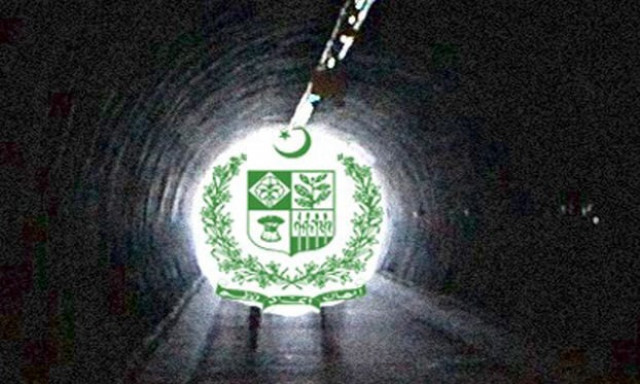Every state apparatus requires intelligence agencies, and Pakistan is no different. There are actually three well known intelligence agencies in Pakistan: Intelligence Bureau (IB), Military Intelligence (MI), and ISI. There are 26 intelligence agencies in the US.
Somehow, the ISI and the CIA are the two that are most demonized.
The turmoil in Pakistan’s past has led to censure of the ISI. A visible feature of the ISI’s history that has done great damage to its reputation is the continual deterioration of civilian institutions due to multiple military coups. Despite some improvements in civil-military relations in recent years, the army remains a dominant actor in Pakistan’s political makeup.
Previous abuses of power should put intelligence reform at the top of the agenda for change. Before Pakistan can continue its democratic transition, these changes must be addressed. It seems some corrections to the system have already been made; ISI has recently demonstrated a previously unseen forthrightness with both local and international media.
However, the international community continues to blame the country’s problems on the ISI, but still maintains working relations with the agency. Often, these relations undermine the democratic government and vindicate the very intelligence actors that need to be controlled. This double standard can be avoided by direct involvement with the Pakistani government, rather than going through intelligence services.
Additionally, the integration of former ISI agents into other civilian bodies, particularly the IB, should be limited or stopped. Cross-recruitment prevents organizations from becoming independent.
Pakistan also needs to strengthen the police force. A better-trained and better-equipped police force can do a better job of counter terrorism, which work is currently used by the intelligence agencies to legitimize control over politics in Pakistan.
US Secretary of Homeland Security Janet Napolitano says that the US government is prepared to help develop Pakistan’s law enforcement infrastructure. From training police to setting up point-of-entries at Pakistan-Afghanistan borders, the US can help Pakistan using its experience regulating the US-Mexico border.
Ignoring the need to establish supremacy over the intelligence community would be a grave mistake on the part of Pakistan’s civilian government. Reducing the role of the military in the intelligence sector will allow the government to consolidate itself domestically, so it should be a top priority. In addition, government control over military and intelligence will cast a positive light on the state of Pakistan’s emerging democracy, and will improve international opinions of Pakistan.
Although reform to intelligence agencies will be difficult, the good news is that with patience, resolve, and international assistance, Pakistan’s government can indeed reassert civilian control over the intelligence community. Luckily for Pakistan, there are predecessors to take notes from. Indonesia and Chile have both undergone transformations in the intelligence arena and have plenty to offer Pakistan by way of example.
Intelligence agencies reform in Indonesia and Chile became a reality after media began exposing the atrocities and, people had the courage to reject authoritarianism. Reform of the murky Indonesian intelligence service, Badan Intelijen Negara (BIN), were spurred by revelations that emerged in the trial of the alleged killer of the country's top human right activist.
Munir Said Thalib, died from arsenic poisoning while on a flight on Garuda, Indonesia's national airline, from Jakarta to Amsterdam via Singapore on Sept. 7, 2004. Indonesian media exposed the hands behind Munir’s murder.
Extensive exposure by the mass media of the massive human rights violations and power abuse by the Tentara Nasional Indonesia (TNI), led to the abrupt breakdown in its public image. And, the abolition of “Dwifungsi ABRI” (the dual-function of the military) became a major demand of the pro-democracy movement.
In this same sense, the Pakistani media’s role is necessary to question the functioning of ISI. To cite but one example, there has been no follow-up on Dr Aafia Siddiqui’s accusations of ISI agents, kidnapping her.
In saying all this, though, we must remember not to throw out the baby with the bath water. Like any other state, Pakistan needs a strong defense system. Calling for military and intelligence reform should not be confused with anti-nationalism; we must always remember the sacrifices of those foot soldiers that valiantly put their lives on the line for their nation's security.
Ibrahim Sajid Malick is a Pakistani-American writer, technologist, and social entrepreneur. Mr. Malick graduated from New School for Social Research with a master’s degree in anthropology. He holds several technology and management certifications. Reach him ati@ibrahimsajidmalick.com



COMMENTS
Comments are moderated and generally will be posted if they are on-topic and not abusive.
For more information, please see our Comments FAQ